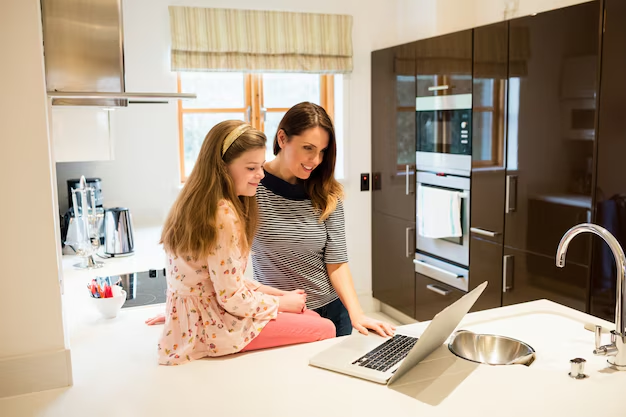Is It Necessary for a Refrigerator to Have Its Own Circuit? A Comprehensive Guide
When it comes to setting up home appliances, especially major ones like refrigerators, there's often a question about wiring requirements. One such question frequently asked by both homeowners and budding electricians is whether a refrigerator should be on its own electrical circuit. This topic, although often overlooked, holds significant importance for ensuring the efficiency, safety, and longevity of your appliance. Let's dive into the details to better understand why, or why not, your refrigerator needs its own circuit.
Understanding Electrical Circuits in the Home
What is an Electrical Circuit?
An electrical circuit is a path in which electrons from a voltage or current source flow. The purpose of these circuits is to operate devices or appliances linked to them. In homes, these circuits are protected by circuit breakers which cut off electrical flow to prevent overload and potential hazards such as fires.
Types of Home Electrical Circuits
Typically, residential electrical systems have two designs: dedicated circuits and general-purpose circuits. Dedicated circuits are reserved for single appliances, while general-purpose circuits power multiple devices.
Why Circuits Matter
Having a clear understanding of how electrical circuits operate is important. Electrical overloads are major concerns when multiple appliances are run on a single circuit. Overloading can lead to tripped breakers or, in worst-case scenarios, electrical fires.
Should Your Refrigerator Be on Its Own Circuit?
The Case for a Dedicated Circuit
Prevent Overload: Refrigerators generally require significant power, especially those with freezers and additional features. A dedicated circuit ensures the refrigerator gets an uninterrupted power supply, reducing the risk of overload.
Complies with Electrical Codes: Many building codes recommend or require a separate circuit for major appliances, including refrigerators, to maintain safety and efficiency.
Reduces Risk of Appliance Malfunction: Sharing a circuit can lead to power shortages that can affect the refrigerator's cooling performance and lead to potential spoilage of food.
When a Shared Circuit Might Be Acceptable
In some older homes or specific situations, sharing a circuit might be necessary. However, this is generally a temporary solution and often follows certain guidelines:
- Low-Consumption Appliances Only: If sharing, ensure the other appliances on the circuit are low in power consumption.
- Monitor Usage: Regularly check the breaker to ensure no tripping occurs.
- Consult a Professional: Have a licensed electrician assess whether sharing power is safe and appropriate for your setup.
Key Considerations for Homeowners
Understanding Your Refrigerator's Requirements
Check the Manufacturer's Recommendations: Most manufacturers specify electrical requirements, often highlighting whether a dedicated circuit is necessary.
Know Your Power Usage: Appliances have labels specifying their wattage. Make sure the sum of all appliances on a circuit doesn’t exceed its safe capacity.
Practical Installation Tips
Understand Your Electrical Panel: Before making changes, familiarity with your home's electrical panel and circuit layout is crucial. Leveraging this knowledge can prevent potentially hazardous mistakes.
Hire a Licensed Electrician: Rather than attempting DIY wiring, hiring a professional can ensure safety, compliance with local codes, and peace of mind.
Anticipate Future Needs: If planning upgrades, think about future usage. Perhaps consider installing more circuits for additional appliances.
Advantages and Disadvantages of Dedicated Circuits
Benefits of Having a Refrigerator on Its Own Circuit
- Enhanced Safety: Decreases the likelihood of electrical fires due to overload.
- Improves Appliance Performance: Ensures sufficient power supply, maintaining optimal performance.
- Compliance with Modern Codes: Meets electrical standards, adding value and safety to your home.
Potential Downsides
- Initial Costs: Installation of additional circuits can be costly, depending on your home’s electrical layout.
- Space Limitations: Not all panels have capacity for additional breakers, leading to larger upgrades.
Summary: Key Takeaways and Practical Tips
Here's a quick overview to consider when deciding on your refrigerator’s electrical needs:
📌 Safety First: Always prioritize safety. Using dedicated circuits minimizes risk of overload and fire hazards.
🔌 Know Your Appliances: Understanding the wattage and requirements of your refrigerator is crucial.
👷♂️ Consult Professionals: Engaging with licensed electricians ensures proper assessment and installation.
📈 Plan for the Future: Consider potential upgrades and the addition of appliances.
⚡ Regular Maintenance: Ensure regular maintenance of electrical systems to keep everything running smoothly.
These strategies will help you ensure your refrigerator receives the power it needs without compromising safety or functionality.
When it comes to your home's electrical setup, especially for essential appliances like refrigerators, ensuring you're following best practices is key to maintaining a safe, efficient, and reliable home environment. With the right preparation and guidance, you'll be well-equipped to make informed decisions that best suit your needs.

